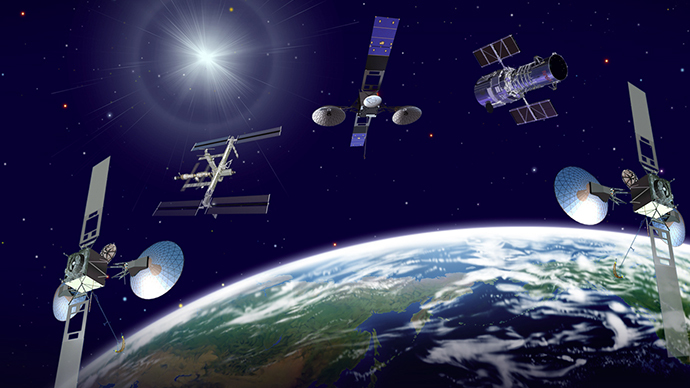British MoD works on ‘quantum compass’ technology to replace GPS

UK scientists say they are three to five years away from creating a new navigation system that would not rely on space-based technologies. A “quantum compass” might replace the US’s widely-used GPS, first in military and then on smartphones.
The British Ministry of Defense is investing millions of pounds into the “earth-based” technology, which they hope may become an alternative to space-based GPS on board nuclear submarines and ships.
Part of the reason the MoD is so keen to develop a “quantum compass” is that GPS doesn’t work underwater.
When submarines dive they navigate using accelerometers to register every twist and turn of the vessel. However, this method is not very accurate.
“Today, if a submarine goes a day without a GPS fix we’ll have a navigation drift of the order of a kilometer when it surfaces,” says Neil Stansfield from the UK Defense Science and Technology Laboratory (DSTL) at Porton Down that is working on the project.
Eventually, a “quantum compass” might be available for smartphone users who now use GPS to pinpoint their location.
The DSTL’s team was inspired by the Nobel-prize winning discovery that revealed that lasers can trap and cool a cloud of atoms placed in a vacuum to less than a millionth of a degree above absolute zero, to temperatures a billion times colder than outer space.
At their lowest energies, the atoms become the coldest known bodies in the universe. Super-cooled low energy atoms are extremely sensitive to changes in the Earth’s magnetic and gravitational field.
If trapped on a small device, their fluctuations can allow scientists to track their movements from great distances away and their locations pinpointed with extreme precision.
So far, the Defense Science and Technology Laboratory has developed a quantum navigation system resembling a “1-meter-long shoe box,” according to Stansfield. Scientists are now focusing their efforts on miniaturizing the device, so that it can be used by soldiers and not just on board submarines and ships.
“Quantum TNS [Time, Navigation and Sensing] technologies could bring game-changing advantages to the UK defense sector and support markets measured in billions of pounds, here in the UK and around the world,” Stansfield said.
Unlike GPS, the pioneer in the field of pinpointing locations, a “quantum compass” will be interference-proof. The US has repeatedly warned that its GPS is vulnerable to attacks and deliberate disruption.
A “quantum compass,” may also be used to create the world's most accurate atomic clocks, scientists say.
In 2013, the UK announced an investment of £270 million over five years to research the possibility of incorporating quantum science in new products and services, the Financial Times reports. According to the newspaper, companies including Nokia, Hitachi and Toshiba have established quantum research laboratories in Britain.













